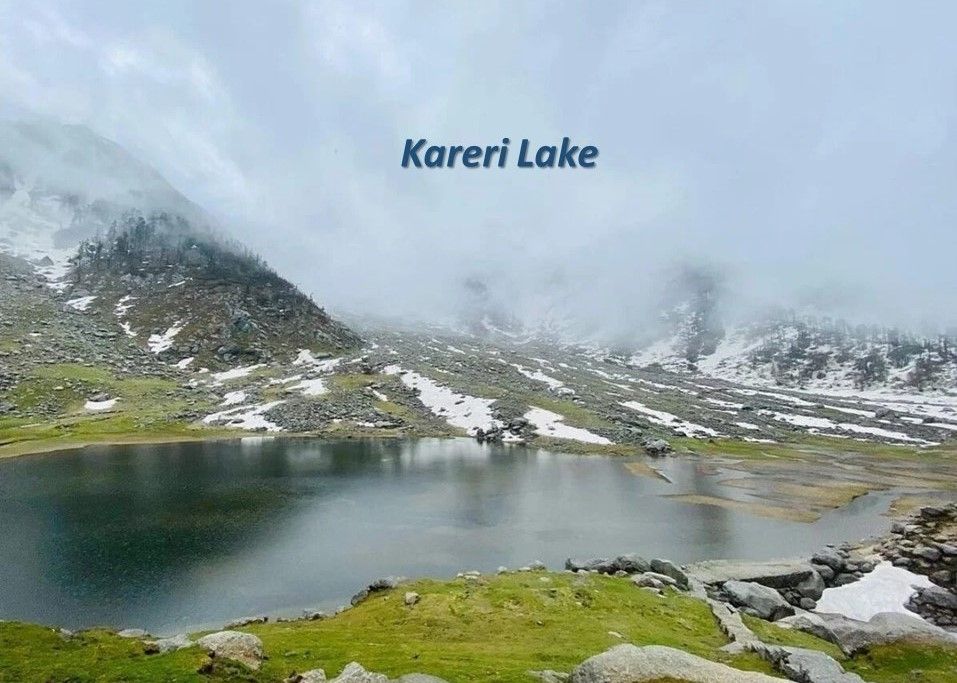
Nestled in the southern reaches of the Dhauladhar range in Himachal Pradesh, Kareri Lake, also known as Kumarwah Lake, stands as a testament to the region's pristine natural beauty. Situated at an elevation of 2,934 meters, this shallow, freshwater lake is more than just a scenic vista; it's a vital component of the local ecology and a burgeoning hub for tourism, particularly trekking enthusiasts. Located approximately 9 kilometers northwest of Dharamsala in the Kangra district, Kareri Lake offers a captivating blend of natural splendour and adventurous pursuits.
The ecological significance of Kareri Lake stems primarily from its source: the melting snow of the Dhauladhar range. This constant replenishment with fresh meltwater ensures the lake's clarity and contributes to its unique aquatic environment. The shallowness of the lake further enhances the visibility, often allowing visitors to observe the lake bed with remarkable clarity. The outflow from the lake forms the Nyund stream, which plays a crucial role in irrigating the surrounding landscape and supporting the local ecosystem. The lake's water quality and the health of the Nyund stream are intrinsically linked to the overall ecological balance of the region, making its preservation paramount.
Kareri Lake's strategic location makes it a significant stepping stone for trekkers venturing deeper into the Dhauladhar range. The Popular Kareri Lake trek typically commences from Mcleodganj, a bustling town known for its Tibetan culture and spiritual significance. The trail winds its way to Kareri village, situated at 1,800 meters, offering a gradual ascent through dense pine forests and past quaint villages, providing glimpses into the traditional Himachali way of life. This initial leg of the trek immerses visitors in the region's rich biodiversity and cultural heritage.
From Kareri village, the trail ascends towards the lake itself, a journey characterized by multiple crossings of the Kareri Nallah via wooden bridges. These crossings add an element of adventure to the trek, requiring careful navigation and enhancing the overall experience. The sound of rushing water accompanies trekkers as they traverse the rugged terrain, creating a sensory symphony that resonates with the untamed spirit of the Himalayas. The trail from Kareri Lake extends further to Bagga and Rewa, eventually leading to the Guna Devi temple, perched at a height of 2,120 meters. This temple, dedicated to the Hindu goddess Guna Devi, offers a serene sanctuary and panoramic views of the surrounding landscape. From Guna Devi Temple, the track ascends towards Triund at 2,850 meters, before finally looping back to Mcleodganj, completing a circuit that showcases the region's diverse topography and cultural landmarks.
The trek to Kareri Lake, while challenging, is accessible to individuals with moderate fitness levels. The best time to undertake this adventure is during the Indian summer season when the weather is relatively mild and the snow has receded, allowing for safe passage across the trails. The absence of a direct road to Kareri Lake further contributes to its unspoiled character, preserving its natural beauty and minimizing the impact of vehicular traffic. The closest road head is at Ghera, a village near Dharamsala, from where a 3-kilometer hiking trail leads to Kareri village. From Kareri village, a 13-kilometer hiking trail follows the Nyund stream to the lake.
The village of Kareri, after which the lake is named, is a Gaddi settlement situated approximately 9 kilometers southeast of the lake. The Gaddi people, a semi-nomadic tribe known for their pastoral traditions, have a long-standing connection to the region, and their cultural practices are intricately interwoven with the natural environment. The presence of the Gaddi community adds a cultural dimension to the Kareri Lake experience, providing visitors with an opportunity to learn about their unique customs and way of life.
In conclusion, Kareri Lake represents a multifaceted treasure within Himachal Pradesh. Its ecological importance as a source of freshwater and a regulator of the local environment is undeniable. As a trekking destination, it offers an unparalleled opportunity to immerse oneself in the grandeur of the Dhauladhar range, experience the thrill of adventure, and connect with the region's rich cultural heritage. As tourism continues to grow in the area, it is imperative that sustainable practices are implemented to protect the fragile ecosystem of Kareri Lake and preserve its pristine beauty for generations to come. Careful management of trekking routes, waste disposal, and water usage are essential to ensure that the ecological integrity of this Himalayan Jewel is maintained, allowing visitors to continue to experience its Natural Wonders without compromising its long-term health.